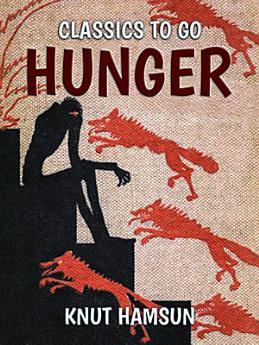Hunger
Jan 2020 · Otbebookpublishing
E-Book
161
Seiten
family_home
Zulässig
info
reportBewertungen und Rezensionen werden nicht geprüft Weitere Informationen
Über dieses E-Book
Hunger (Norwegisch und Dänisch: Sult) ist der erste Roman von Knut Hamsun. Mit ihm gelang Hamsun der literarische Durchbruch. Hamsun begann die Niederschrift des Romans im Sommer 1888 auf der Rückfahrt von seinem zweiten Amerika-Aufenthalt. Der dänische Dampfer Thingvalla hatte auf der Route nach Kopenhagen einen Tag in Kristiania festgemacht. Die Stadt weckte in ihm unangenehme Erinnerungen an das Jahr 1886, als er hier arbeitslos eine schwere Hungerzeit durchzustehen hatte. Hamsun verließ das Schiff nicht und schrieb in der Nacht die ersten Zeilen des Romans, welche bereits die bedrückende Atmosphäre des ganzen Buches erfassen.
Autoren-Profil
Knut Hamsun, born Knud Pedersen in 1859 in rural Norway, is a towering figure in modernist literature, renowned for his innovative narrative techniques and psychological depth. Hamsun's early life was marked by hardship and wanderlust, experiences that profoundly shaped his literary voice. He spent years in America, working various odd jobs, which provided rich material for his later works.Hamsun's breakthrough came with "Hunger" (1890), a novel that delves into the psyche of a starving writer, showcasing his pioneering use of stream-of-consciousness and interior monologue. This novel, along with "Mysteries" (1892) and "Pan" (1894), established him as a master of psychological realism and a precursor to later existentialist writers.Hamsun's influence extended to luminaries such as Franz Kafka, Ernest Hemingway, and Thomas Mann, who admired his ability to capture the complexities of the human condition. His works often explore themes of nature, isolation, and the individual's struggle against societal norms, resonating with contemporary readers who grapple with similar issues.However, Hamsun's legacy is marred by his controversial political views. During World War II, he expressed support for Nazi Germany, a stance that led to his post-war arrest and trial for treason. This aspect of his life continues to spark debate, challenging readers to reconcile his literary genius with his flawed human character.Despite the controversies, Hamsun's contributions to literature are undeniable. His revolutionary ideas about narrative structure and character psychology paved the way for modernist and postmodernist writers, ensuring his place in the pantheon of literary greats.
Dieses E-Book bewerten
Deine Meinung ist gefragt!
Informationen zum Lesen
Smartphones und Tablets
Nachdem du die Google Play Bücher App für Android und iPad/iPhone installiert hast, wird diese automatisch mit deinem Konto synchronisiert, sodass du auch unterwegs online und offline lesen kannst.
Laptops und Computer
Im Webbrowser auf deinem Computer kannst du dir Hörbucher anhören, die du bei Google Play gekauft hast.
E-Reader und andere Geräte
Wenn du Bücher auf E-Ink-Geräten lesen möchtest, beispielsweise auf einem Kobo eReader, lade eine Datei herunter und übertrage sie auf dein Gerät. Eine ausführliche Anleitung zum Übertragen der Dateien auf unterstützte E-Reader findest du in der Hilfe.






